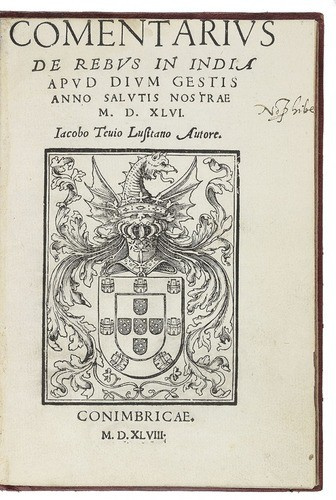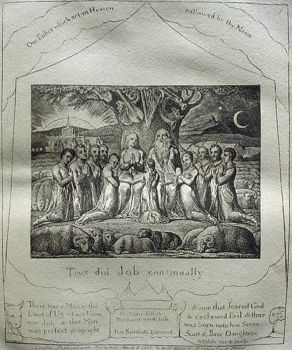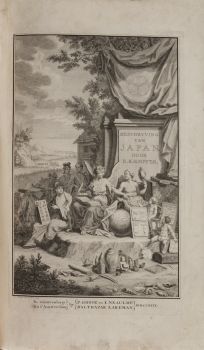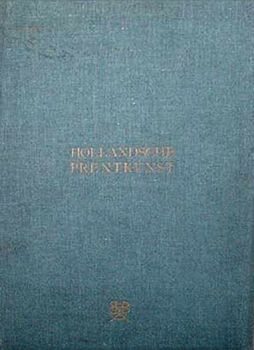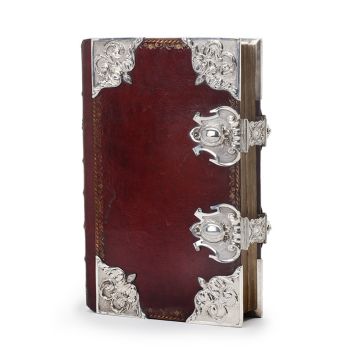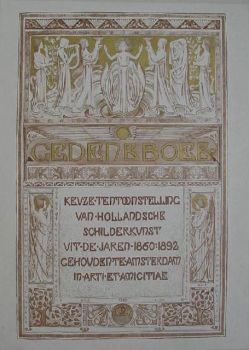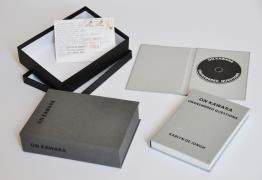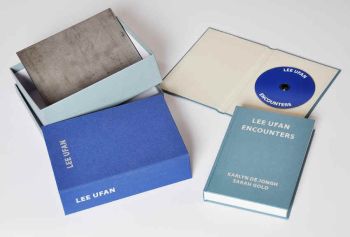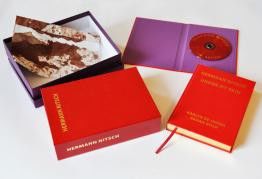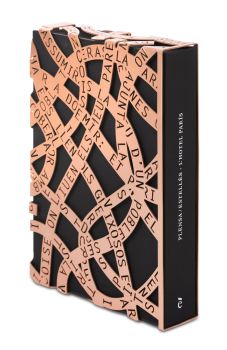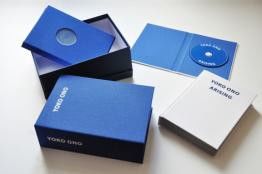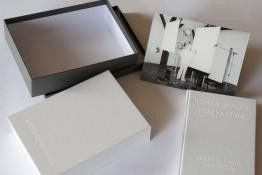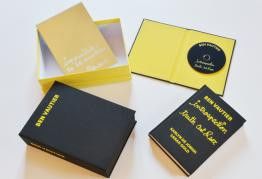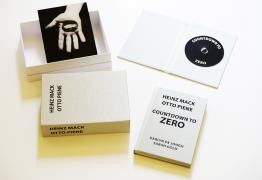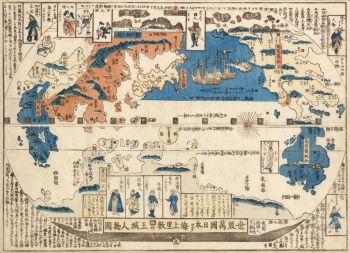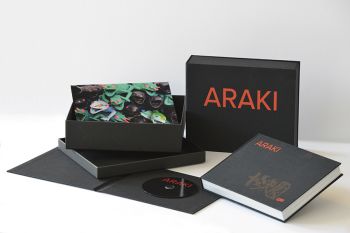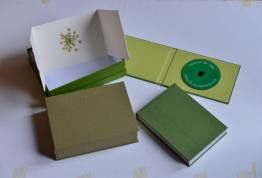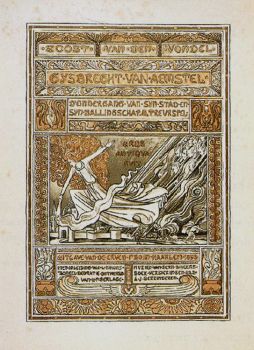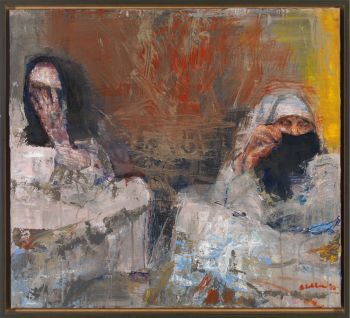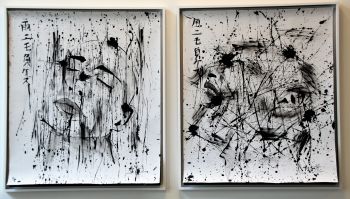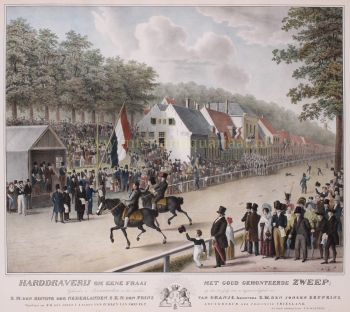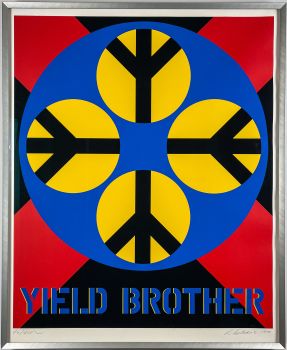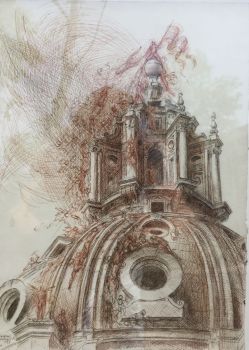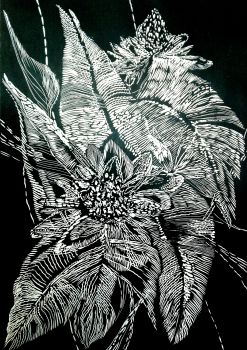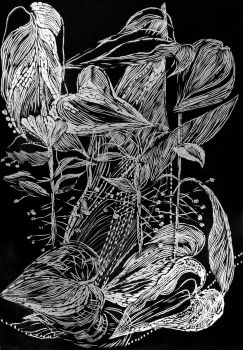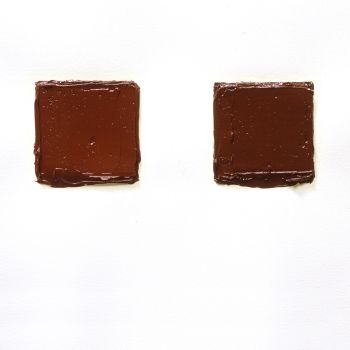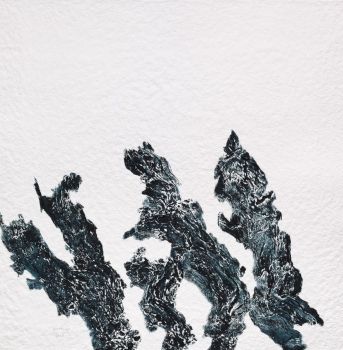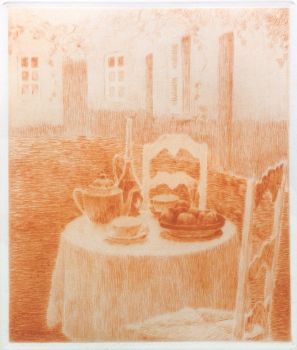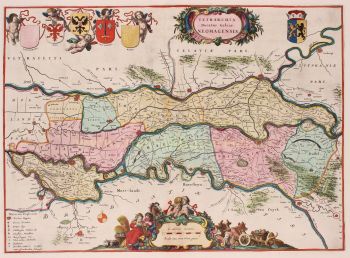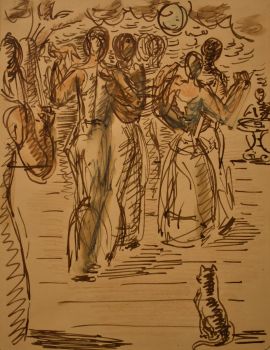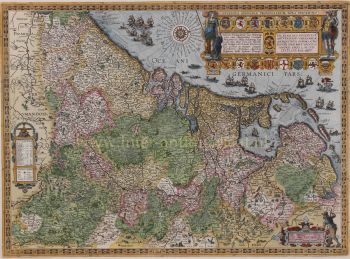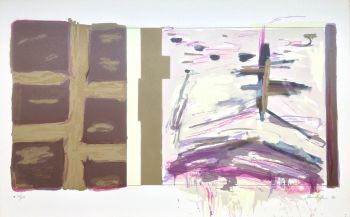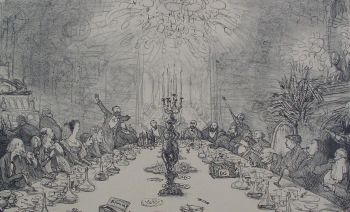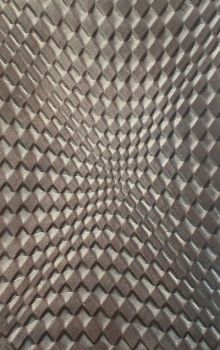Portuguese break 1546 Muslim siege of Diu in Gujarat 1548
Diogo de Teive
InkPaperLeather
ConditionExcellent
Currently unavailable via Gallerease
- About the artworkCom[m]entarius de rebus in India apud Dium gestis anno salutis nostrae M. D. XLVI.
Coimbra, (colophon: produced by João de Barreira and João Álvares, printers to the King), 1548.
Small 4to (18.5×13.5 cm).
With woodcut arms of King João III of Portugal on title-page.
Set in Peter Schoeffer the younger's Parangon (121 mm/20 line or 18 point) italic and with an extremely early use of Claude Garamont's Canon roman (not previously recorded before 1549).
Gold-tooled red sheepskin (18th-century refurbished in the 19th century).
First edition, in Latin, of a report on the Portuguese in India and especially on their defeat of the Muslim Gujarat Sultanate at the second siege of Diu in 1546, written by the Portuguese humanist Diogo de Teive (ca. 1514-ca. 1570). The book opens with a 4-page dedication to King João III, dated 1 March 1548, and two verses (each occupying a full page), followed by the main text, dated August 1547.
The Portuguese reached India in 1498 (and regarded it as their property under the 1494 Treaty of Tordesillas concluded with Spain) but in the early years they met stiff resistance from the Gujarats, supported at various times by the Mamluks and the Ottoman Empire. Although they never penetrated far inland, the Portuguese gradually came to dominate the coastal areas, in particular expanding their territory and power in northwest India from 1509 to 1546. In 1546 the Gujarats under Khoja (or Khwaja) Sofar tried to retake Diu, lost in 1509, but after a seven-month siege they were routed by the Portuguese fleet under João de Castro. This established the European colonial power and the European spice trade in India (including what is now Pakistan), where Portugal was to be followed by the Dutch and especially England before most of India finally gained its independence in 1947. Small parts, including Diu, remained in Portuguese hands until 1961.
Trimmed, shaving an accent on the title-page and the running head on a few pages, but otherwise in good condition, with some minor defects. The binding has several worm holes and the spine is damaged and partly restored. A contemporary account of the Portuguese defeat of the Muslim forces in Gujarat in 1546.
Palau 328839; USTC 343307. - About the artistDiogo de Teive (ca.1514 - ca. 1569) was a humanist, a latinist and a scholar who was born in Braga in Portugal. He spent most of his his formative years abroad, in Europe. He would return to Portugal owing to the initiative of King John III of Portugal.
Diogo de Teive was accused of Protestantism by the Portuguese Inquisition, and sentenced to imprisonment in 1550. Nonetheless, Teive did not flee from the country, and was affiliated with the Portuguese royal family and to the court, where he was as a scholar and a clergyman. Diogo de Teive wrote tragedies in Latin and various historical and philosophical works.
Artwork details
Category
Subject
Material & Technique
Related artworks
Engelbert Kaempfer
ENGELBERT KAEMPFER BOOK1651 - 1716
Price on requestZebregs & Röell - Fine Art - Antiques
Tilmanus Nicolaus Maastricht
Missale Romanum with Dutch silver mounts1788 - 1792
Price on requestJacob J. Roosjen SRI
Antonie Derkinderen
Memory book Exhibition of Dutch Painting1892
Price on requestKunsthandel Pygmalion
Hermann Nitsch
"UNDER MY SKIN" Signed book incl. small artwork and DVD in a matching box2010 - 2014
Price on requestGallerease Selected
Yoko Ono
YOKO ONO: "ARISING" SIGNED BOOK PLUS SMALL ARTWORK 2010 - 2014
Price on requestGallerease Selected
Engelbert Kaempfer
ENGELBERT KAEMPFER BOOK1651 - 1716
Price on requestZebregs & Röell - Fine Art - Antiques
Antonie Derkinderen
Memory book Exhibition of Dutch Painting1892
Price on requestKunsthandel Pygmalion
Tilmanus Nicolaus Maastricht
Missale Romanum with Dutch silver mounts1788 - 1792
Price on requestJacob J. Roosjen SRI
1 - 4 / 22- 1 - 4 / 4
Rene Rietmeyer
"Germany, Saarland, April 2001"2001
Price on requestEuropean Cultural Centre Collection
1 - 4 / 24

